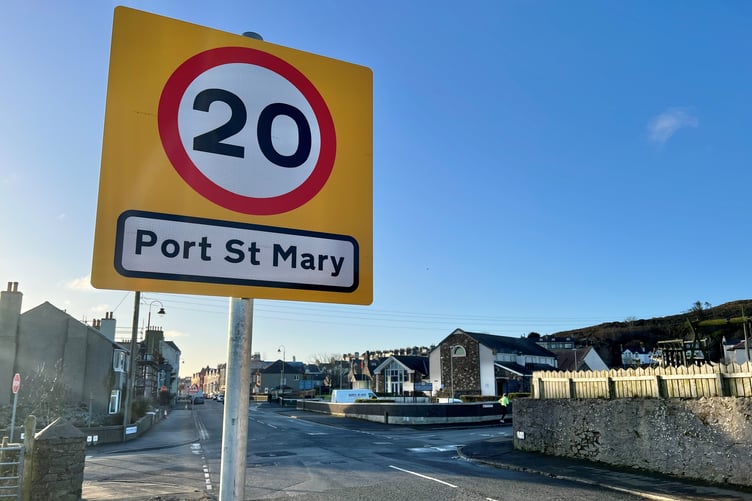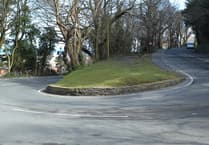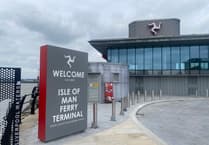A petition has been created to stop the planned roll-out of 20mph zones across the Isle of Man.
Port St Mary recently became the first village in the island to introduce a blanket 20mph zone, with signs being installed to reflect the new speed limits on the village’s residential roads.
This implementation marks the first project in a phased scheme to be rolled out across all of the island’s towns and villages over the next two years.
However, the introduction of the new speed limit in Port St Mary has led to a petition being created to ‘halt’ the Department of Infrastructure’s (DOI) plans.
The petition was created on Wednesday, March 5 by Lee Smith, and received over 700 signatures in its first two days.
The description of the petition reads: ‘Our island's wellbeing is at stake with the Department of Infrastructure's plan to introduce a universal 20mph limit across our roads.
‘The proposed project, while may seem beneficial for pedestrian safety, has several ignored implications, chiefly amongst them being the increase in congestion and CO2 emissions.
‘Traffic speeds influence the choice between car travel and greener forms of transport like cycling and walking. Lower speeds can make these alternatives less appealing, leading to a dependency on car travel and, consequently, an increase in carbon emissions.
‘According to the UK Department for Transport, stop-start driving caused by congestion can increase CO2 emissions by as much as 30%.
‘By setting a blanket speed limit of 20mph, we risk making our traffic flow less efficient and more environmentally damaging.’
The petition also raises the issue of road congestion and the financial impact this could have on the DOI.
‘The principle remains that increased congestion equals increased costs to our economy,’ it continues.
‘The proposed speed limit risks not only our environment but our island's prosperity too.
‘We urge for an in-depth analysis and reevaluation of this blanket 20mph speed limit plan.
‘Let's find a balance between safety, efficiency, and ecology.’
Following the completion of the work in Port St Mary, the next phase of the strategy will see changes introduced in Douglas and Onchan.
No new traffic calming measures will be implemented under the initiative.
In a post on its Facebook page, the Department of Infrastructure said: ‘Reducing traffic speeds in residential areas is seen as an important step towards improving people’s quality of life and creating streets that are safe and inclusive.’
Residents in Port St Mary broadly welcomed the new speed limit, but certain frustrations were raised in an online forum over the lack of consultation and slow progress in fixing the village’s ‘crumbling’ High Street.
Replying to these concerns, Infrastructure Minister Michelle Haywood, a former Port St Mary Commissioner, commented: ‘Traffic data shows that speeds through the village average 23mph anyway. Even at that speed, damage still occurs to wing mirrors.
‘Fixing the High Street is still an ongoing task. Funding has been secured, but first we have to solve what to do with the carcinogenic coal tar waste, and then the project can go ahead.’

.jpeg?width=209&height=140&crop=209:145,smart&quality=75)


